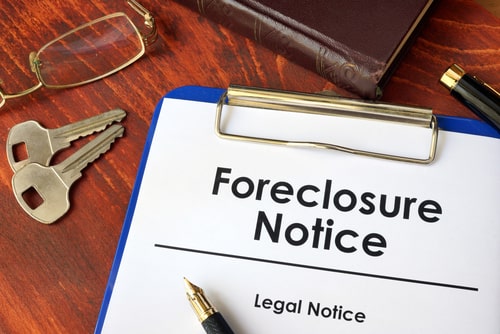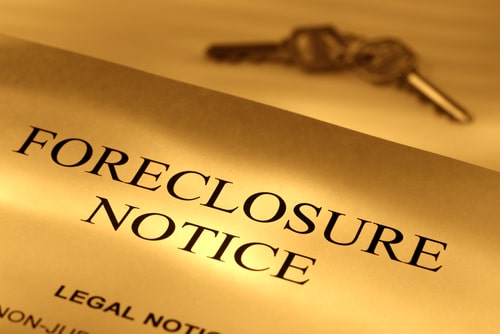1512 Artaius Parkway, Suite 300,
Libertyville, IL 60048
Call for a FREE Phone Consultation
847-549-0000
Video Consultations Also Available
 Spanish
SpanishServing Clients Across 7 Illinois Locations
Recent Blog Posts
What is a Strategic Loan Default?
 The housing market crash of 2008 left many Illinois homeowners "underwater" on their mortgages, owing more than properties were worth. In this situation, some borrowers may consider a "strategic default" - intentionally stopping mortgage payments even if they can afford them. But what exactly is a strategic default, and what are the potential consequences for borrowers? An Illinois lawyer can help you take a closer look at strategic loan defaults and what you need to know.
The housing market crash of 2008 left many Illinois homeowners "underwater" on their mortgages, owing more than properties were worth. In this situation, some borrowers may consider a "strategic default" - intentionally stopping mortgage payments even if they can afford them. But what exactly is a strategic default, and what are the potential consequences for borrowers? An Illinois lawyer can help you take a closer look at strategic loan defaults and what you need to know.
What is a Strategic Loan Default in Illinois?
A strategic loan default, also known as a strategic default or voluntary foreclosure, is when a borrower deliberately stops making mortgage payments on their home even though they have the financial ability to continue paying. This is typically done when the home's market value has dropped substantially below the outstanding loan balance, leaving the borrower "underwater" on their mortgage.
What to Do If You Are Served with Foreclosure Papers
 Receiving foreclosure papers can be a frightening and overwhelming experience for any homeowner. However, remember that being served with foreclosure papers does not mean you will automatically lose your home. Understanding the process and taking the right steps can protect your rights and potentially save your home. An Illinois lawyer can guide you through what to do in this challenging situation.
Receiving foreclosure papers can be a frightening and overwhelming experience for any homeowner. However, remember that being served with foreclosure papers does not mean you will automatically lose your home. Understanding the process and taking the right steps can protect your rights and potentially save your home. An Illinois lawyer can guide you through what to do in this challenging situation.
Do Not Ignore the Foreclosure Papers
The worst thing you can do when served with foreclosure papers is to ignore them. In Illinois, you have 30 days from the date of service to respond to the complaint. Failure to respond within this timeframe can result in a default judgment against you, meaning you could lose your home without having the opportunity to present your case in court.
Review the Complaint Carefully
Take the time to review the foreclosure complaint thoroughly. This document will outline the lender’s claims against you, including the amount owed and the reason for the foreclosure. Check for any errors or discrepancies in the information provided, as these could be used in your defense.
Preparing Your Estate for Unexpected Health Crises
 One of the most beneficial things you can do for your estate is to make sure it is ready for any unforeseen health emergency. Proactive estate planning ensures that your preferences are honored and your family is supported in challenging times. An Illinois lawyer can help you with the essential components of estate planning and offer guidance on preparing for unforeseen events.
One of the most beneficial things you can do for your estate is to make sure it is ready for any unforeseen health emergency. Proactive estate planning ensures that your preferences are honored and your family is supported in challenging times. An Illinois lawyer can help you with the essential components of estate planning and offer guidance on preparing for unforeseen events.
Make Your Wishes Known to Your Advance Directives
One of the most important aspects of estate planning is creating advance directives. Illinois has two main types of advance directives: a healthcare power of attorney and a living will. A healthcare power of attorney allows you to choose someone you trust to make medical decisions on your behalf when you are unable to make them yourself. On the other hand, a living will specifies your preferences for end-of-life care, such as whether you want to be kept on life support.
How to Contest a Will in Illinois
 Losing a loved one is never easy, and dealing with their estate can add extra stress during an already difficult time. If you believe there are issues with the deceased’s will, you may wish to contest it in court. An Illinois lawyer can help you see if you have grounds to contest a will and how to go about it based on your situation.
Losing a loved one is never easy, and dealing with their estate can add extra stress during an already difficult time. If you believe there are issues with the deceased’s will, you may wish to contest it in court. An Illinois lawyer can help you see if you have grounds to contest a will and how to go about it based on your situation.
Grounds for Contesting a Will
In Illinois, there are several valid grounds that allow you to initiate a will contest:
- Lack of Testamentary Capacity: The deceased must have been of sound mind when creating their will. If you can prove they lacked the required mental capacity due to issues like dementia, the will could be invalidated.
- Undue Influence: If someone exerted excessive pressure or took advantage of the deceased’s weakened state to unfairly influence the will’s contents, you can argue the will is invalid due to undue influence.
Navigating the Foreclosure Process in Illinois
 The foreclosure process can be confusing and overwhelming for homeowners facing financial hardship. An Illinois attorney focused on real estate and foreclosure law can provide some guidance on the steps in the foreclosure process and your options as a homeowner.
The foreclosure process can be confusing and overwhelming for homeowners facing financial hardship. An Illinois attorney focused on real estate and foreclosure law can provide some guidance on the steps in the foreclosure process and your options as a homeowner.
Understanding the Foreclosure Timeline
The foreclosure timeline lays out the sequence of events from initial default on your mortgage through to a foreclosure auction of your home. This process is governed by Illinois law and real estate regulations. Some important milestones are the following:
- Notice of default: The first step after you miss payments. The lender sends you written notice of intention to foreclose if you do not repay the owed amount. You typically have 30-90 days to respond before further action.
- Filing of foreclosure case: If the default is not cured, the lender can file a foreclosure case in court outlining the missed payments and requesting permission to auction the home.
A Lawyer’s Guide: Purchasing a Home with a Mortgage
Purchasing a home is one of the most significant financial decisions most people make in their lifetime. For most homebuyers, securing a mortgage is an integral part of this process. While it may seem straightforward, numerous legal intricacies are involved in buying a home with a mortgage.
Facing Foreclosure and Bankruptcy? Know Your Rights
Facing foreclosure and bankruptcy can be an overwhelming and distressing experience. These situations can have far-reaching consequences on financial stability and peace of mind.
 Stop Foreclosure
Stop Foreclosure
















